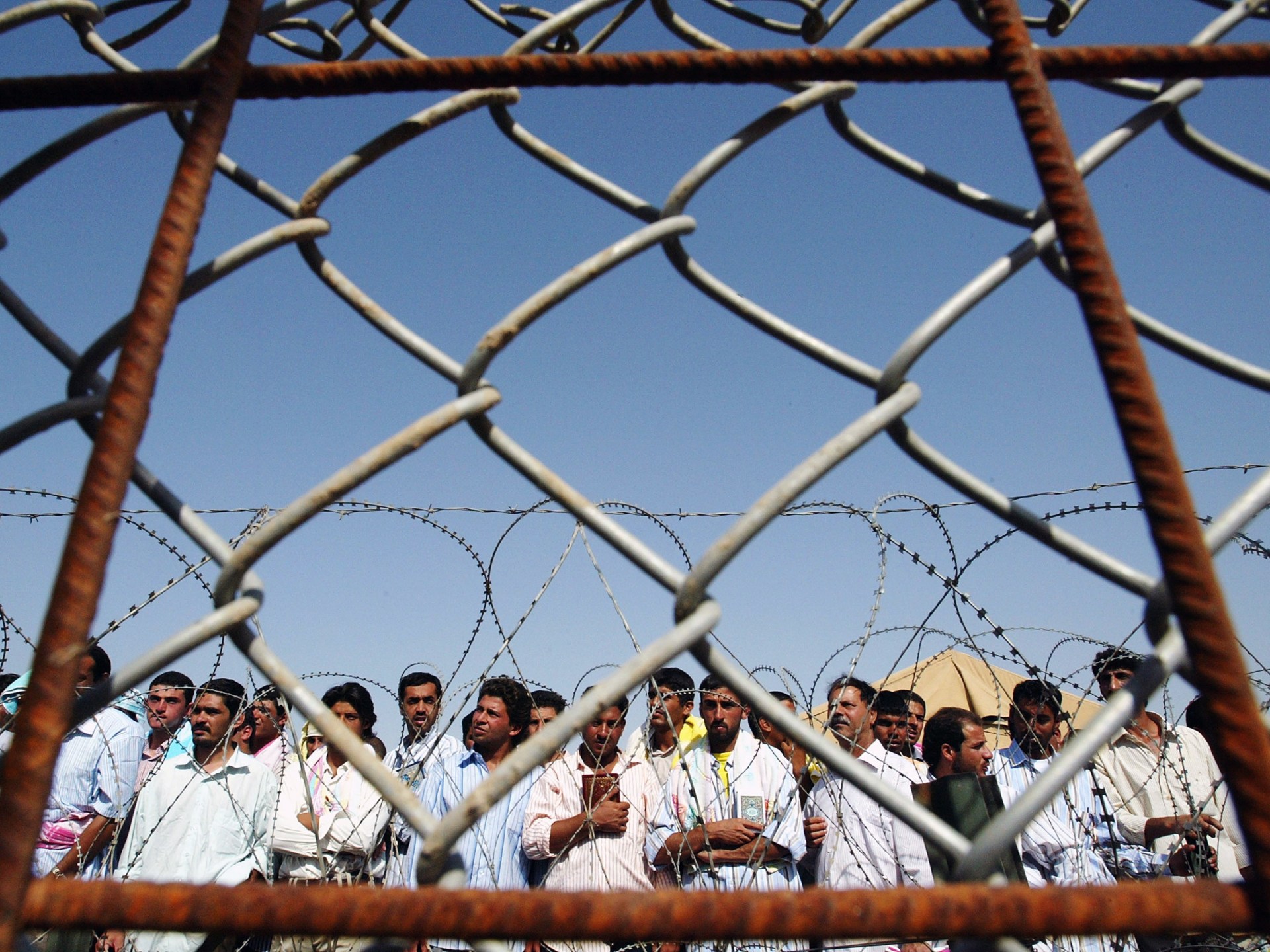More than 20 killed as Bangladesh protesters renew call for Hasina to quit | Protests News
DEVELOPING STORYDEVELOPING STORY,
Protests over a jobs quota system have morphed into a wider antigovernment movement across the country of 170 million people.
More than 20 people have been killed and dozens more injured in a new round of violence in Bangladesh as police fired tear gas and lobbed stun grenades to disperse tens of thousands of protesters who returned to the streets to ask Prime Minister Sheikh Hasina to resign.
The deaths were reported by the police and doctors on Sunday in the capital Dhaka and in the northern districts of Bogura, Pabna and Rangpur, as well as in Magura in the west, Comilla in the east, and Barisal and Feni in the south.
The government has announced that a curfew will be imposed in the coming hour while a communication blackout has already been put in place.
The demonstrators were demanding Hasina’s resignation after earlier protests in July that began with students calling for an end to a quota system for government jobs escalated into violence that left more than 200 people dead.
Al Jazeera’s Tanvir Chowdry, reporting from the capital, described the situation as “volatile and dangerous”. “The protesters are saying that they are not going to move, until their government steps down,” he said.
“People are extremely worried what’s going to happen,” Chowdry said, adding that the crowd of protesters is growing. He also reported clashes between the protesters and supporters of the ruling Awami League party.
Protesters called for “non-cooperation,” urging people not to pay taxes and utility bills and not show up for work on Sunday, a working day in Bangladesh. Offices, banks and factories opened, but commuters in Dhaka and other cities faced challenges getting to work.
“We want the government to resign,” Jahirul Islam, a restaurant worker, told Al Jazeera.
Prapti Taposhi, a student activist who witnessed clashes with police, told Al Jazeera the police were engaged in running battle with the demonstrators.
“I am on the street right now, and I can see so many people here. This is not just a student protest or a ‘quota protest’,” she said, adding that protesters will defy the threat of a curfew.
Meanwhile, protesters also attacked Bangabandhu Sheikh Mujib Medical University, a major public hospital in Dhaka’s Shahbagh area, torching several vehicles.
In Dhaka’s Uttara neighborhood, police fired tear gas to disperse hundreds of people who blocked a major highway.
Protesters attacked homes and vandalised a community welfare office in the area, where hundreds of ruling party activists took up positions. Some crude bombs were detonated and gunshots were heard, witnesses said.
Abu Hena, a hospital official in Munshiganj district near Dhaka, said two people were declared dead after being rushed to a hospital with injuries.
Jamuna TV station reported another 21 deaths in 11 districts including in Bogura, Magura, Rangpur and Sirajganj districts, where the protesters backed by the BNP clashed with police and the activists of the ruling Awami League party and its associated bodies.
The protests began last month as students demanded an end to a quota system that reserved 30 percent of government jobs for the families of veterans who fought in Bangladesh’s war of independence against Pakistan in 1971.
As violence intensified, the country’s Supreme Court scaled back the quota system to 5 percent of jobs, with 3 percent for relatives of veterans.
But protests have continued demanding accountability for violence the demonstrators blame on the government’s use of excessive force.
The unrest, which spurred the government to shut down internet services, is its biggest test since January when deadly protests erupted after Hasina’s Awami League won a fourth straight term in elections boycotted by the main opposition Bangladesh Nationalist Party (BNP).
The protests have now grown into a wider antigovernment movement across the South Asian nation of some 170 million people. At least 11,000 people have been arrested in recent weeks.
Critics of Hasina, along with human rights groups, have accused her government of using excessive force to stamp out the movement, a charge it denies.
Check out our Latest News and Follow us at Facebook
Original Source







